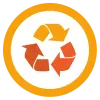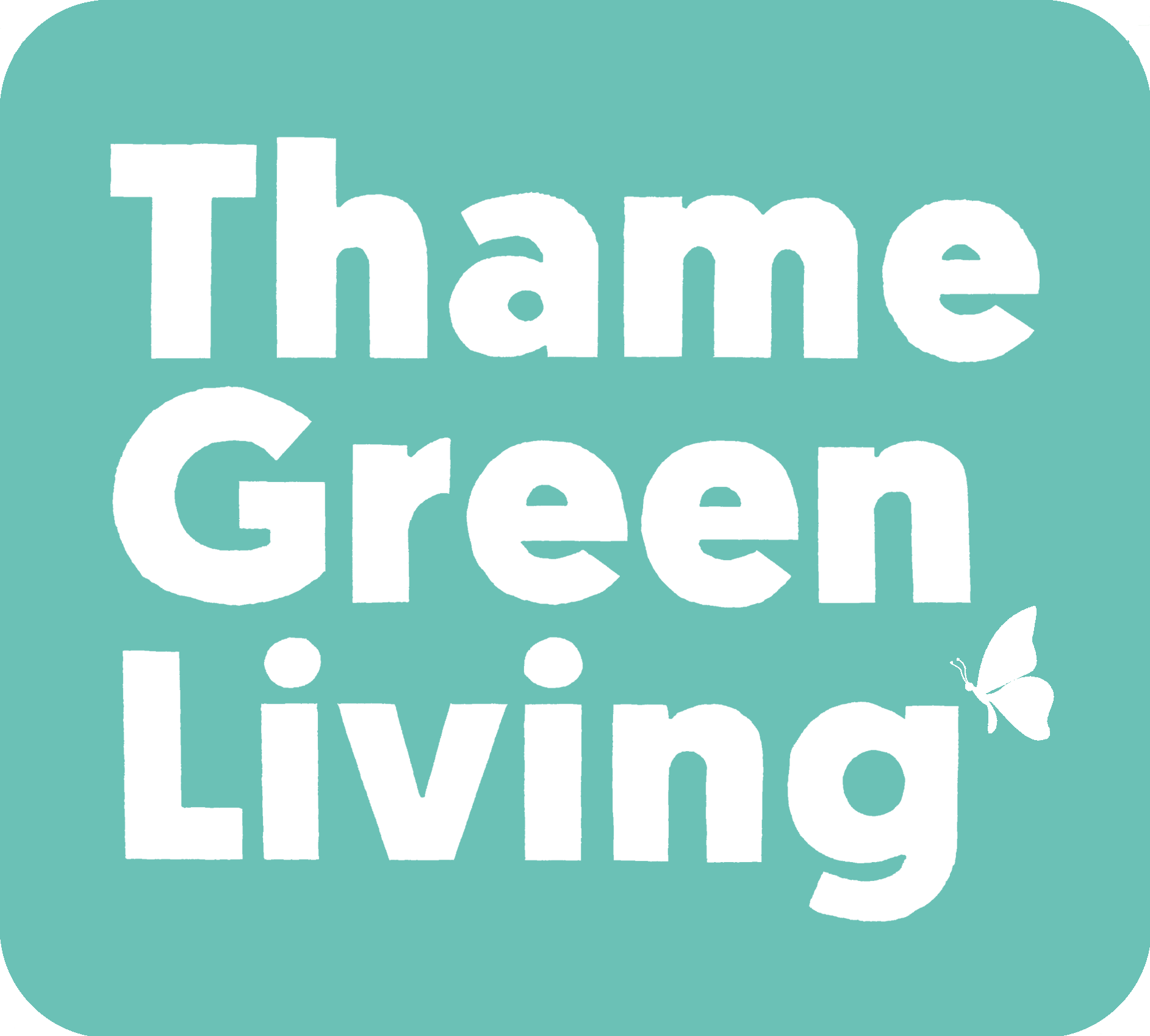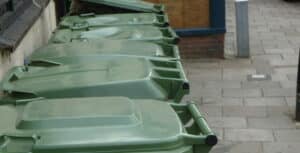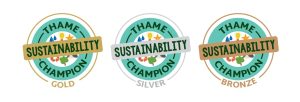

Waste Avoidance, Waste Management and Recycling
We live in a consumer society that has increasingly come to produce more than we collectively need. The result is that many of us frequently buy more than we require, leading to an excess that is often thrown away. Alongside this are two related factors. One is the level of packaging, sometimes multiple layers, surrounding much of what we buy. The other is that we are often induced to buy more than we need by promotional offers or sometimes simply being unable to buy smaller quantities. Further, we have moved away from being a ‘repair society’ towards a ‘throw-away society’, with consequent effects.
Apart from the sheer waste, much packaging is plastic, and of the 360 million metric tonnes of plastic produced annually (Statista 2020), it’s estimated that 40% is used once only (‘single-use plastic’). Plastic degrades extremely slowly, if at all, and can cause immense damage to rivers and marine life. Increasingly, and as a direct result, animals are also ingesting tiny particles of plastic and so in consequence are we in what we eat and through the air that we breathe.
The huge volume of all waste and packaging currently generated threatens to overwhelm our communal ability to dispose of it effectively and safely. How we limit and deal with waste is therefore something that affects us all and is also something each of us can proactively remedy by applying the principles of the ‘Circular Economy’.
Key Issues
Reducing Waste
- Buying less – only buy what we need, in the quantities we need
- Buying better – minimise carbon costs and reduce packaging
- Using less – throw away less, repair rather than replace
- Minimising waste – encourage the ‘circular economy’
Increasing Recycling
- Awareness – individuals and businesses
- Efficiency – easy steps to improve what we do
- Sustaining Efficiency – challenge ourselves further and build on success
5.1 Reduce waste and make informed purchasing decisions


Not Started
Action: Information campaigns on how to re-use unavoidable ‘food waste’ in a beneficial way


In Progress
Action: Encourage campaigns to monitor how much waste we produce and aim to reduce it .

In Progress
Action: Only buy what we really need save money by seeing if you have something else that will do the same job.
5.2 Reduce waste by repair and better use of products


Completed
Encourage local focus groups to hold Saturday repair workshops for sewing, gadgets, wooden items etc in the Town Hall.

Completed
Encourage the use of online sites to find ways to repair and reuse items e.g. Pinterest, Buzzfeed YouTube etc by advertising these on TGL FB page, TTC newsletter and on LWS website.

Completed
Explore the setting up of a ‘Mend Shed’ group in Thame


Completed
Action: Hold Business Breakfast briefings to share best practices for plastic waste reduction in local businesses

Not Started
Action: develop a questionnaire/help-sheet to share with the wider business community for plastic and other waste reduction practices.

Not Started
Action: open discussions with local supermarkets on how to minimise all product packaging.


Completed
Action: Launch awareness campaign to all local businesses on how to keep items in a perpetual loop of use and re-use
5.3 Recycling awareness


In Progress
Action: Hold public awareness-raising events (e.g. outside major shops at a weekend) to stimulate involvement.

Not Started
Action: Develop an easy way to capture local recycling data, e.g. by a short on-line questionnaire via TTC newsletter.

Not Started
Action: Invite local school children to design the image for the on-line questionnaire.

Not Started
Action: Seek closer involvement of Lord Williams’s School, possibly via a student questionnaire.


Not Started
Action: Work with TTC councillors and the Thame Business Forum and interested parties to carry out a voluntary audit of local business recycling practices.

Not Started
Action: Develop a simple questionnaire, based on the community version, for local businesses, including a means of following up.

In Progress
Action: Raise awareness of Supply Chain Audits and the specialists who can assist with this.


In Progress
Action: Undertake desktop research to develop a database of best practice country-wide.

In Progress
Action: Connect with national bodies, such as WRAP in Banbury, BioRegional and local county CAG groups.

Completed
Action: Liaise with 21st Century Thame and Plastic Free Thame to check alignment and offer support to relevant aspects of their initiatives.
5.4 Recycling efficiency and continuous improvements


Not Started
Action: Raise awareness of Recycling as a major public opportunity by: Publishing questionnaire results to keep the community informed.

Not Started
Action: Raise awareness of Recycling as a major public opportunity by: Holding a competition for ideas and ways to improve recycling rates.


Completed
Action: Implement greater spread and sharing of recycling information by: Devising a Thame Town Council Recycling Award for best local business practice and community involvement.

Completed
Action: Implement greater spread and sharing of recycling information by: Finding ways of publicly celebrating business benefits to the community.

In Progress
Action: Implement greater spread and sharing of recycling information by: Promoting home recycling such as food composting and wormeries
5.5 Sustaining recycling efficiency and building on success


Not Started
Action: Use interim progress to set longerterm goals.

Not Started
Action: Develop metrics to monitor progress.

Not Started
Action:Form a ‘Recycling for Thame’ team of interested parties in the town, to meet, discuss, disseminate and respond.

Not Started
Action: Communications through, for example, involvement at community events (a float or stand at the Carnival?), public events – leafletting on weekends, music events etc.
5.6 Emerging technologies for waste management


Not Started
Action: Track new energy developments, e.g. small-scale local generation from waste, to provide electricity, heat or hydrogen.

Not Started
Action: Consider eligibility for Thame to be a trial location for new technologies; this may provide openings for funding through government innovation support and public grants.




